TOP 10 most useful and aromatic herbs to replace tea leaves
Aromatic herbs for tea can be found in fields, meadows, forests and even in the garden at the dacha. And if summer has long passed, then you can buy dry raw materials at the pharmacy.
Did you know that classic black tea appeared in Rus' only in the 16th-17th centuries? Before this, people collected and stored local plants for the winter, prepared infusions and decoctions. Today, herbal drinks are gaining popularity again.
We suggest you find out what is better to use as tea leaves instead of tea leaves.
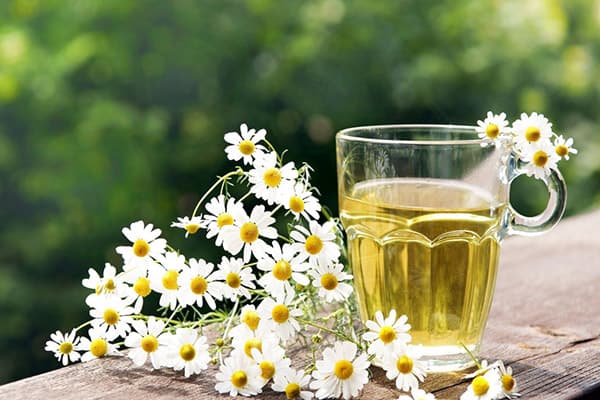
Chamomile
Chamomile is one of the most popular herbs for making tea. It contains a large amount of mucus, which softly envelops the walls of the gastrointestinal tract.
The drink has the following healing properties:
- relieves intestinal colic;
- relieves symptoms of gastritis;
- serves as a prevention of colds;
- relieves headaches caused by overwork and stress;
- relaxes the psyche;
- improves skin tone.
Doctors recommend drinking chamomile tea to people who often take medications with acetylsalicylic acid (aspirin). It protects the walls of the stomach from erosion.
How to make tea? Pour 1.5 teaspoons of dry chamomile with a glass of boiling water. Leave for 10 minutes. If desired, add lemon juice and honey to the warm drink.
Linden blossom
Linden flower tea has a rich taste with sweet fruity notes.It contains phytoestrogens, which behave like female sex hormones in the body. Consequently, when drinking such a drink, a woman’s hormonal levels are normalized.
Linden tea also has a calming, analgesic, anti-inflammatory and antipyretic effect. This is an excellent medicine for acute respiratory viral infections, influenza and other viral infections.
To prepare tea, pour 8–10 dried linden flowers with a glass of water heated to 90 degrees. Leave for 15 minutes.
Mint
Mint contains a large amount of menthol. This substance enhances sweating and has a cooling effect. Therefore, it is useful to drink mint tea during a cold.
A drink made from mint leaves has other beneficial properties:
- eliminates bloating;
- helps cope with nausea, which is especially valuable for pregnant women;
- relaxes the muscles of the throat and chest, relieving dry cough;
- makes breath fresh by destroying bacteria living in the oral cavity;
- promotes the outflow of bile;
- reduces appetite;
- calms the nerves.
To make mint tea, it is better to use fresh leaves, but dry leaves are also suitable. Pour 1 tablespoon of crushed raw materials with a glass of boiling water and leave for 20 minutes.
Fireweed
Popularly, fireweed grass is called fireweed tea. It contains 5 times more vitamin C than lemons. The fireweed drink has a mild sweetish taste and brings the following benefits to the body:
- relieves different types of pain: headache, muscle, stomach, joints;
- helps cope with insomnia;
- normalizes the menstrual cycle in women;
- removes harmful compounds from the body.
To make tea, it is common to collect and ferment the leaves of the plant or use the flowers.The finished raw material (1 tablespoon) is poured with a glass of boiling water and brewed for 10 minutes.
St. John's wort
St. John's wort is part of many herbal antidepressant medications that are officially sold in pharmacies. Herbal tea from it helps protect the psyche from stress, drive away fatigue, bad mood and insomnia. In addition, St. John's wort increases the acidity of gastric juice, facilitating the process of digesting food. The plant is contraindicated for hypertensive patients as it increases blood pressure.
How to brew St. John's wort tea? Pour 1 teaspoon of dry herb with hot water (90°C) and leave to steep for 10 minutes.
Thyme
Tea producers like to mix thyme with regular black tea. But the grass can be collected from the field and used as the only component of the drink. Due to the high content of essential oils, it has a strong spicy aroma.
Thyme tea reduces inflammatory processes in the body, accelerates recovery from acute respiratory viral infections, and destroys pathogenic microflora in the intestines. It is often prescribed to patients with rheumatoid arthritis.
To prepare the drink, pour half a tablespoon of dried raw materials (flowers, leaves or twigs) with a glass of water at a temperature of 90 degrees. Leave for 10 minutes.
Cowberry
Lingonberry leaves are used in traditional medicine as an antiseptic and diuretic. They drink tea for inflammatory processes in the kidneys and bladder (cystitis, urethritis, pyelonephritis).
The leaves need to be collected either in the spring before the lingonberries bloom, or in the fall, when the fruits fall off. To prepare tea, you need to pour 2 tablespoons of dry leaves with a glass of water and keep in a water bath for 30 minutes. Then strain.Dilute the resulting infusion in a glass of water at room temperature.
Raspberries
Raspberry tea has antiviral, diaphoretic and antipyretic effects, and removes toxins from the body. No wonder they drink it for colds and flu.
You can brew both dry and fresh leaves: 1 tablespoon (crushed) per glass of boiling water. Infusion time is 10 minutes. However, raspberry leaves do not have a distinct taste. Therefore, it is better to add some crushed berries, raspberry jam or honey to the finished tea.
Cherry
Cherry leaves contain many phytoncides and antioxidants. When brewed, they help the body fight viruses and bacteria, relieve inflammation and swelling of soft tissues, slow down the aging process, and prevent cancer.
To prepare the drink, pour 1 tablespoon of fresh or dry crushed leaves with a glass of boiling water. Leave for 10 minutes. Cherry tea has a strong fruity aroma and tart taste.
Dandelion
Instead of tea leaves, you can use dandelion root. It must be thoroughly washed and dried in the sun until the milky juice stops secreting. Then dry in the oven at a temperature of 55–60 degrees, fry in a dry frying pan and grind in a coffee grinder.
The drink made from dandelion root tastes a little like coffee. You need to dilute 1 teaspoon of powder in a glass of hot water. The drink invigorates, improves intestinal motility and helps you lose weight.
The tea herbs listed in the article have many health benefits over traditional tea leaves. They do not contain caffeine. Therefore, they are not addictive and do not increase the load on the heart. Medicinal plants saturate the body with vitamins and other beneficial substances.To make the tea truly delicious, brew the herbs in glass, ceramic or porcelain containers.
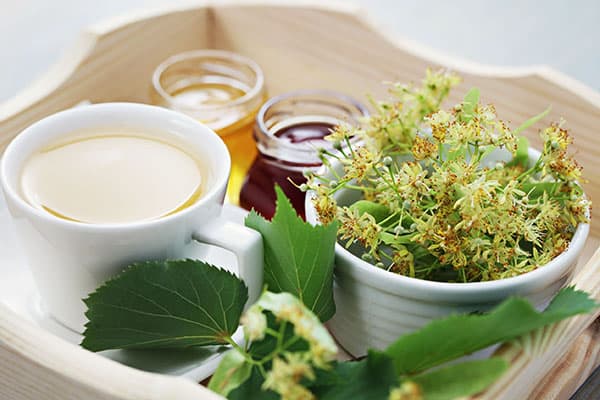
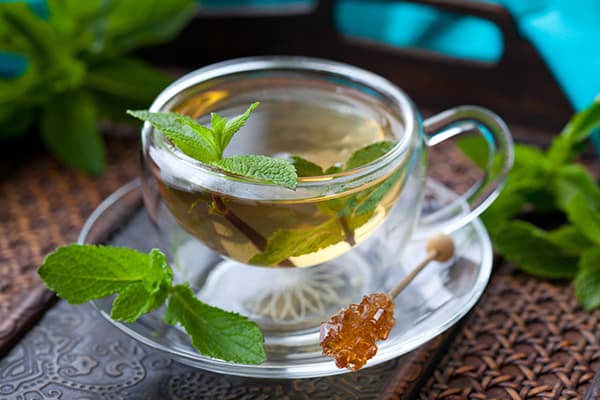
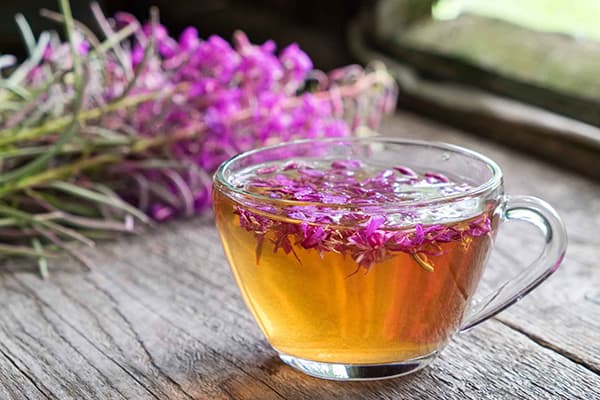
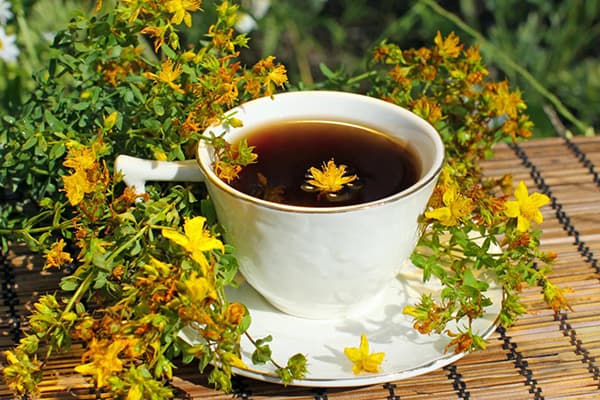
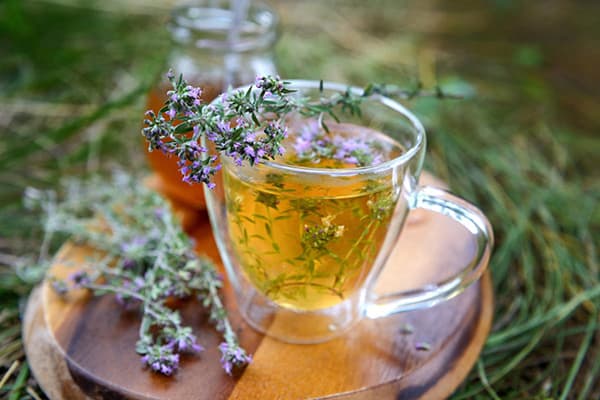
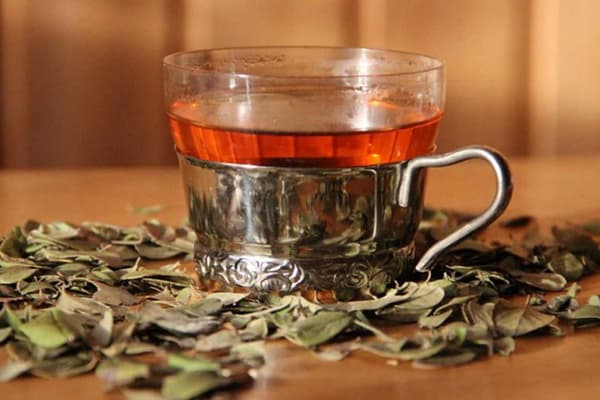
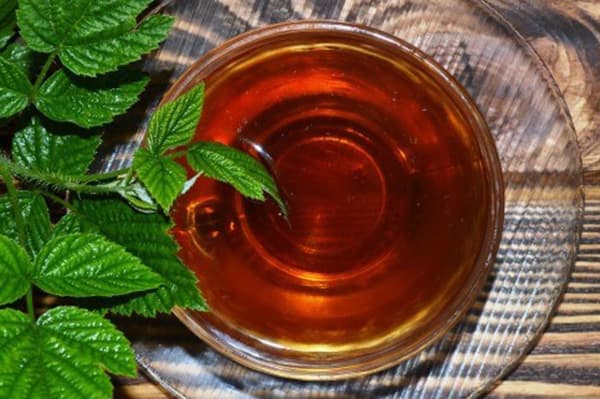
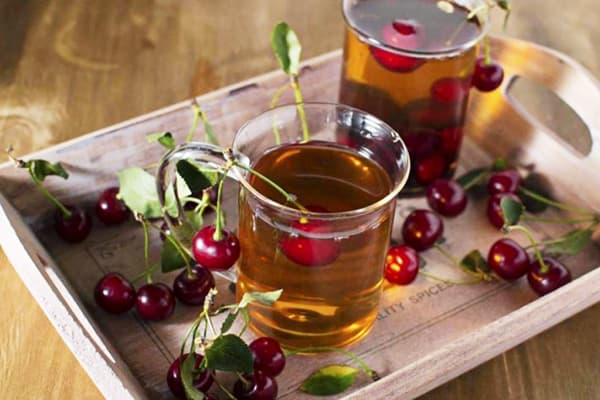
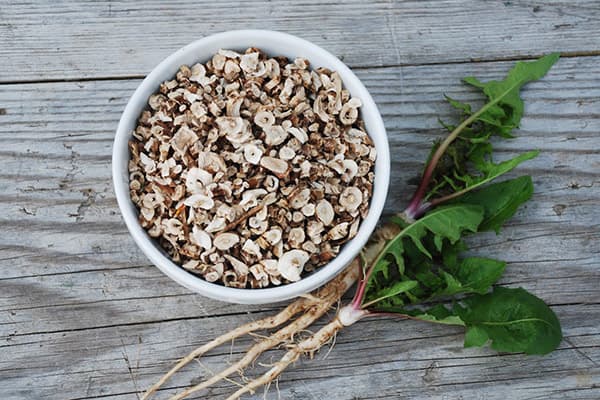
and do not abuse - medicinal herbs, use for prevention
Cool information. Let's change the tea leaves to herbal ones.?